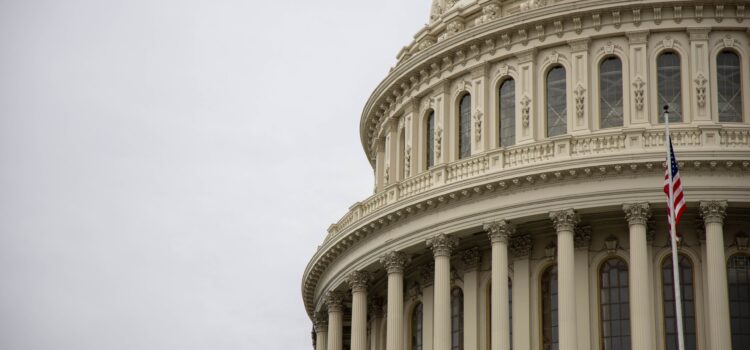
This is a free excerpt from one of Shortform’s Articles. We give you all the important information you need to know about current events and more.
Don't miss out on the whole story. Sign up for a free trial here .
Why is the House in disarray? How likely is another government shutdown? What are the consequences of Congress failing to approve required spending bills on time?
Disarray in the US House of Representatives has sparked concerns about a government shutdown on November 17. Some experts argue that worsening political divides increase the likelihood of a shutdown. Others counter that the passage of a temporary spending measure will avert the crisis.
Continue reading to learn whether or not another government shutdown is likely, and what it would mean.
Is Another Government Shutdown Coming?
Chaos in the US House of Representatives has raised fears of another government shutdown. Lawmakers have until November 17 to reach a deal or critical services will halt.
Background
A government shutdown occurs when Congress fails to pass legislation to fund federal agencies and programs. The lack of funding disrupts essential services, leads to worker furloughs, and has cascading effects on sectors like tourism that rely on national parks and museums, which close during shutdowns. It may also delay military pay and social security payments to seniors. Shutdowns slow economic activity, halt federal data collection, and result in costs accumulating quickly.
In early October, members of the House who are seen as more extreme voted to oust Representative Kevin McCarthy from his role as Speaker. Over the next three weeks, the party nominated four candidates as potential replacements—three of whom failed to secure sufficient votes. Ultimately, in late October, Rep. Mike Johnson of Louisiana was elected to assume the position.
This tumultuous process, coupled with weeks of uncertainty regarding the Speaker’s position, bought House business and funding negotiations to a standstill, intensifying concerns about a looming government shutdown.
View 1: A Government Shutdown Is Possible
Many political analysts and business groups say that a shutdown could happen due to the House’s disarray and divergent spending priorities within and between political parties:
- Speaker Johnson is an untested leader whose capacity to navigate a challenging fiscal battle is unknown.
- Growing partisan clashes have led Congress to pass fewer spending bills on schedule and to previous shutdowns.
- Partisan spending proposals and divisions among Congressional Republicans over President Biden’s emergency military aid funding requests for Ukraine and Israel are diverting attention and resources from the appropriation bills process.
View 2: A Government Shutdown Is Unlikely
Economists and lawmakers on both sides of the aisle believe a shutdown is unlikely. They argue that:
- The election of House Speaker Mike Johnson following weeks of internal conflict diminished the chances of a shutdown.
- Congress will likely pass a short-term funding measure to fund agencies, giving them more time to negotiate.
- Emerging geopolitical tensions—including the conflict in Israel and recent US airstrikes in Syria—decrease the likelihood of Congress allowing a shutdown to happen.
- Republicans want to prove they can govern competently.
Looking Ahead
Though many think a shutdown is unlikely before year’s end, with a new House Speaker and a rapidly approaching deadline to fund the government, forecasting with certainty remains challenging.
Further, some economists say that averting a shutdown before November 17 doesn’t guarantee smooth sailing. Even if Congress passes a temporary spending bill, core disputes among legislators remain unresolved. That means the shutdown risk could persist in early 2024. And the more Congress relies on short-term fixes, the harder it becomes to reach a full-year funding agreement.

Want to fast-track your learning? With Shortform, you’ll gain insights you won't find anywhere else .
Here's what you’ll get when you sign up for Shortform :
- Complicated ideas explained in simple and concise ways
- Smart analysis that connects what you’re reading to other key concepts
- Writing with zero fluff because we know how important your time is






